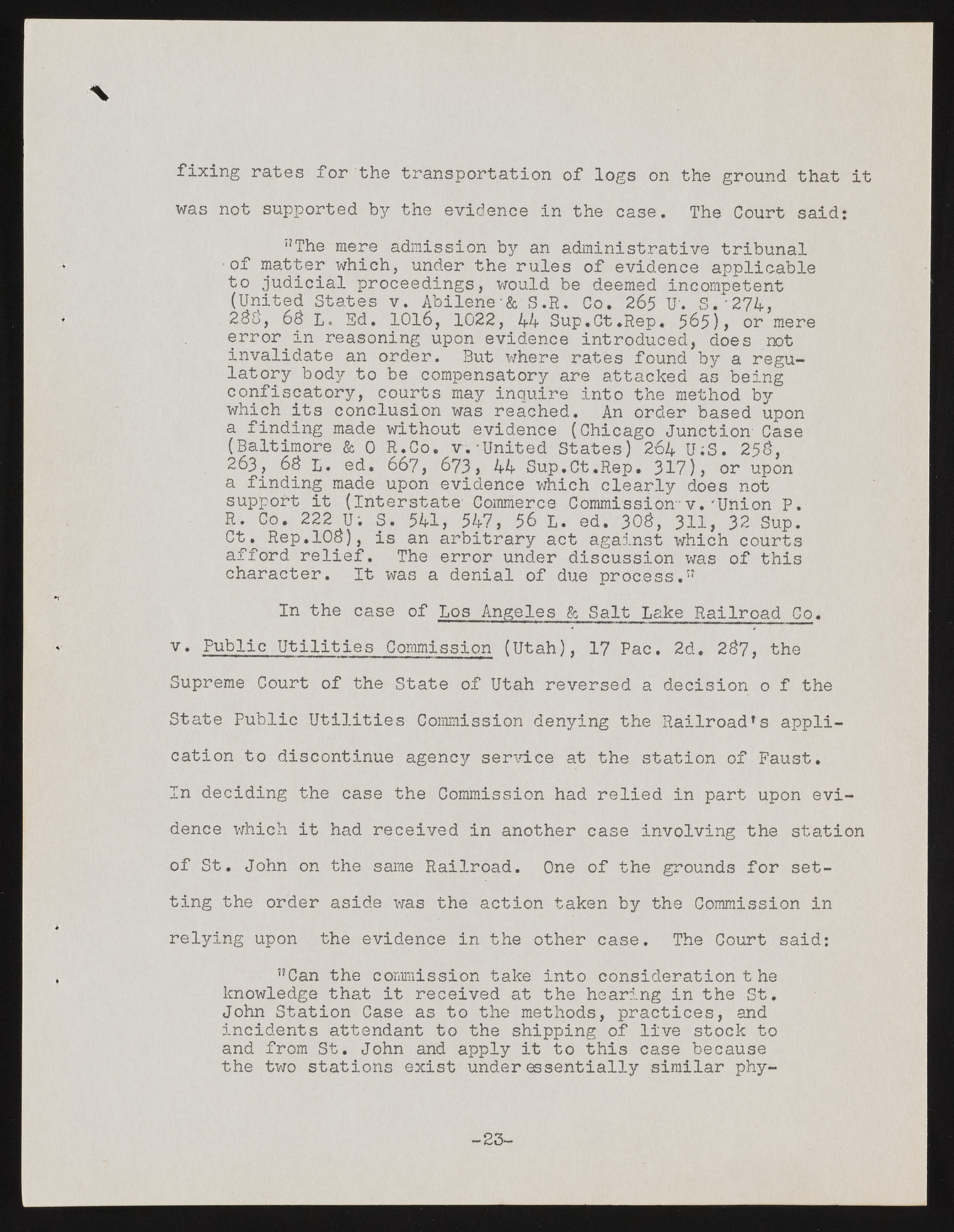Copyright & Fair-use Agreement
UNLV Special Collections provides copies of materials to facilitate private study, scholarship, or research. Material not in the public domain may be used according to fair use of copyrighted materials as defined by copyright law. Please cite us.
Please note that UNLV may not own the copyright to these materials and cannot provide permission to publish or distribute materials when UNLV is not the copyright holder. The user is solely responsible for determining the copyright status of materials and obtaining permission to use material from the copyright holder and for determining whether any permissions relating to any other rights are necessary for the intended use, and for obtaining all required permissions beyond that allowed by fair use.
Read more about our reproduction and use policy.
I agree.Information
Digital ID
Permalink
Details
Member of
More Info
Rights
Digital Provenance
Publisher
Transcription
fixing rates for the transportation of logs on the ground that it was not supported by the evidence in the case. The Court said: I?The mere admission by an administrative tribunal ?of matter which, under the rules of evidence applicable to judicial proceedings, would be deemed incompetent (United States v. Abilene-&S.R. Co. 265 U'. S.'274, 233, 63 L. Sd. 1016, 1022, 44 Sup.Ct.Rep. 565), or mere error in reasoning upon evidence introduced, does not invalidate an order. But where rates found by a regulatory body to be compensatory are attacked as being confiscatory, courts may inquire into the method by which its conclusion was reached. An order based upon a finding made without evidence (Chicago Junction- Case (Baltimore & 0 R.Co. v.-United States) 264 U;S. 25$, 263, 6$ I. ed. 667, 673, 44 Sup.Ct.Rep. 317), or upon a finding made upon evidence which clearly does not support it (Interstate- Commerce Commission-v.'Union P. R. Co. 222 U; S. 541, 547, 56 L. ed. 303, 311, 32 Sup. Ct^ Rep.103), is an arbitrary act against which courts afford relief. The error under discussion was of this character. It was a denial of due process.17 In the case of Los Angeles & Salt Lake Railroad Co. v. Public Utilities Commission (Utah), 17 Pac. 2d. 237, the Supreme Court of the State of Utah reversed a decision o f the State Public Utilities Commission denying the Railroadrs application to discontinue agency service at the station of Faust. In deciding the case the Commission had relied in part upon evidence which it had received in another case involving the station of St. John on the same Railroad. One of the grounds for setting the order aside was the action taken by the Commission in relying upon the evidence in the other case. The Court said: ,7Can the commission take into consideration t he knowledge that it received at the hearing in the St. John Station Case as to the methods, practices, and incidents attendant to the shipping of live stock to and from St. John and apply it to this case because the two stations exist under essentially similar phy- - 25-

